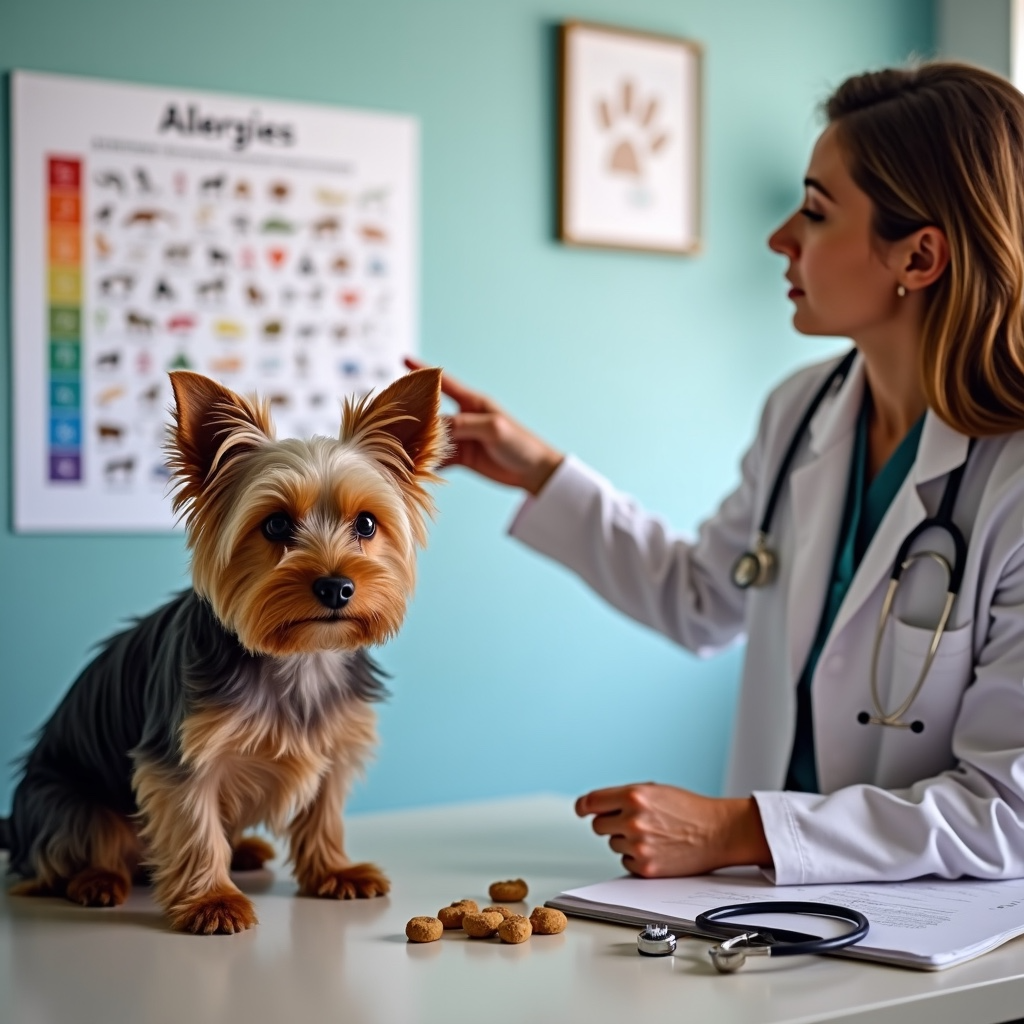How to Spot Allergies in Your Yorkshire Terrier and Manage Them
Allergies are common in Yorkshire Terriers and can cause discomfort if left untreated. In this guide, we’ll explore the types of allergies Yorkies may face, including food, environmental, and contact allergies, along with the symptoms to watch for—such as itching, red skin, and chronic ear infections. Managing your Yorkie’s allergies with vet-recommended diets, proper grooming, and treatments like antihistamines can make a big difference in their quality of life. Learn how to spot the signs early and keep your Yorkie happy and healthy!
Allergies are common in Yorkshire Terriers, and recognizing the signs early is essential for keeping your Yorkie healthy and happy. In this guide, we’ll cover the different types of allergies, how to spot symptoms, and effective management techniques to help your Yorkie live comfortably.
Common Types of Allergies in Yorkshire Terriers
Food Allergies
Yorkies can develop food sensitivities, often due to ingredients like beef, chicken, or grains. Symptoms of food allergies include:Itchy skin
Gastrointestinal issues (vomiting, diarrhea)
Chronic ear infections
Environmental Allergies
Pollen, dust mites, mold, and even grass can trigger allergic reactions in your Yorkie. Symptoms of environmental allergies can include:Constant scratching or licking
Watery eyes
Sneezing
Red or inflamed skin
Contact Allergies
Some Yorkies may develop allergies to certain shampoos, cleaning products, or materials like plastic. Signs to watch for include localized skin reactions, such as:Redness
Swelling
Hives
How to Spot Allergy Symptoms
To catch allergies early, monitor your Yorkie for changes in behavior and physical condition. Key symptoms to look out for:
Excessive scratching, licking, or biting at the skin
Hair loss or thinning
Red, irritated skin, particularly around the paws, ears, and face
Persistent ear infections or inflammation
If your Yorkie displays any of these signs, consult your veterinarian to determine the cause and develop a treatment plan.
Managing Your Yorkie’s Allergies
Once you’ve identified your Yorkie’s allergens, management is crucial for their comfort and well-being. Here are a few steps you can take:
Adjust Their Diet
If food allergies are the issue, switch to a hypoallergenic or limited-ingredient diet. Consult your vet for advice on which diet will best suit your Yorkie.Use Medicated Shampoos
For skin allergies, using hypoallergenic or medicated shampoos can relieve itching and soothe the skin. Always use products designed for dogs and consult your vet before trying something new.Minimize Exposure to Environmental Allergens
If your Yorkie suffers from seasonal or environmental allergies, limit outdoor activity during high pollen times and clean their paws and coat after walks. Air purifiers may also help reduce indoor allergens.Medication and Treatments
Your vet may prescribe antihistamines, steroids, or allergy shots, depending on the severity of the allergy. These treatments can reduce symptoms and provide your Yorkie with much-needed relief.Keep Up With Grooming
Regular grooming helps keep your Yorkie’s coat and skin healthy. Weekly ear cleaning and nail trimming can prevent infections that could worsen allergy symptoms. At Essence of Grace Yorkies, we begin grooming our puppies at five weeks old, so they are accustomed to the process by the time they reach their new homes at 12 weeks.
Conclusion
Spotting and managing allergies in your Yorkshire Terrier is vital to their long-term health and happiness. With the right approach, including a vet-recommended diet, proper grooming, and minimizing allergens, your Yorkie can live a comfortable, allergy-free life.
